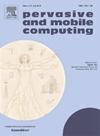基于信息新鲜度和机会交付的弹性无人机位置共享服务
IF 3.5
3区 计算机科学
Q2 COMPUTER SCIENCE, INFORMATION SYSTEMS
引用次数: 0
摘要
无人驾驶飞行器(UAV)已经被认为是一个用于各种服务的通用平台。在飞行过程中,这些飞行器必须避免碰撞才能安全运行。通过这种方式,他们需要保持空间意识,即了解其覆盖区域内的其他人。然而,机动性和定位阻碍了建立无人机网络基础设施来支持可靠的基本服务。因此,此类车辆需要具有最新信息的位置服务,以抵御虚假位置注入威胁。这项工作提出了FlySafe,这是一种弹性无人机位置共享服务,采用机会主义方法提供无人机的位置。FlySafe考虑了无人机位置的新鲜度,以保持其空间感知。此外,它依靠无人机的位置信息的年龄来触发设备发现。仿真结果表明,FlySafe在无人机操作中实现了高达94.15%的空间感知,对网络中注入的错误位置具有弹性。发现精度达到94.53%,定位误差小于2 m。本文章由计算机程序翻译,如有差异,请以英文原文为准。
Resilient UAVs location sharing service based on information freshness and opportunistic deliveries
Unmanned aerial vehicles (UAV) have been recognized as a versatile platform for various services. During the flight, these vehicles must avoid collisions to operate safely. In this way, they demand to keep spatial awareness, i.e., to know others in their coverage area. However, mobility and positioning hamper building UAV network infrastructure to support reliable basic services. Thus, such vehicles call for a location service with up-to-date information resilient to false location injection threats. This work proposes FlySafe, a resilient UAV location-sharing service that employs opportunistic approaches to deliver UAVs’ location. FlySafe takes into account the freshness of UAVs’ location to maintain their spatial awareness. Further, it counts on the age of the UAV’s location information to trigger device discovery. Simulation results showed that FlySafe achieved spatial awareness up to 94.15% of UAV operations, being resilient to false locations injected in the network. Moreover, the accuracy in device discovery achieved 94.53% with a location error of less than 2 m.
求助全文
通过发布文献求助,成功后即可免费获取论文全文。
去求助
来源期刊

Pervasive and Mobile Computing
COMPUTER SCIENCE, INFORMATION SYSTEMS-TELECOMMUNICATIONS
CiteScore
7.70
自引率
2.30%
发文量
80
审稿时长
68 days
期刊介绍:
As envisioned by Mark Weiser as early as 1991, pervasive computing systems and services have truly become integral parts of our daily lives. Tremendous developments in a multitude of technologies ranging from personalized and embedded smart devices (e.g., smartphones, sensors, wearables, IoTs, etc.) to ubiquitous connectivity, via a variety of wireless mobile communications and cognitive networking infrastructures, to advanced computing techniques (including edge, fog and cloud) and user-friendly middleware services and platforms have significantly contributed to the unprecedented advances in pervasive and mobile computing. Cutting-edge applications and paradigms have evolved, such as cyber-physical systems and smart environments (e.g., smart city, smart energy, smart transportation, smart healthcare, etc.) that also involve human in the loop through social interactions and participatory and/or mobile crowd sensing, for example. The goal of pervasive computing systems is to improve human experience and quality of life, without explicit awareness of the underlying communications and computing technologies.
The Pervasive and Mobile Computing Journal (PMC) is a high-impact, peer-reviewed technical journal that publishes high-quality scientific articles spanning theory and practice, and covering all aspects of pervasive and mobile computing and systems.
 求助内容:
求助内容: 应助结果提醒方式:
应助结果提醒方式:


